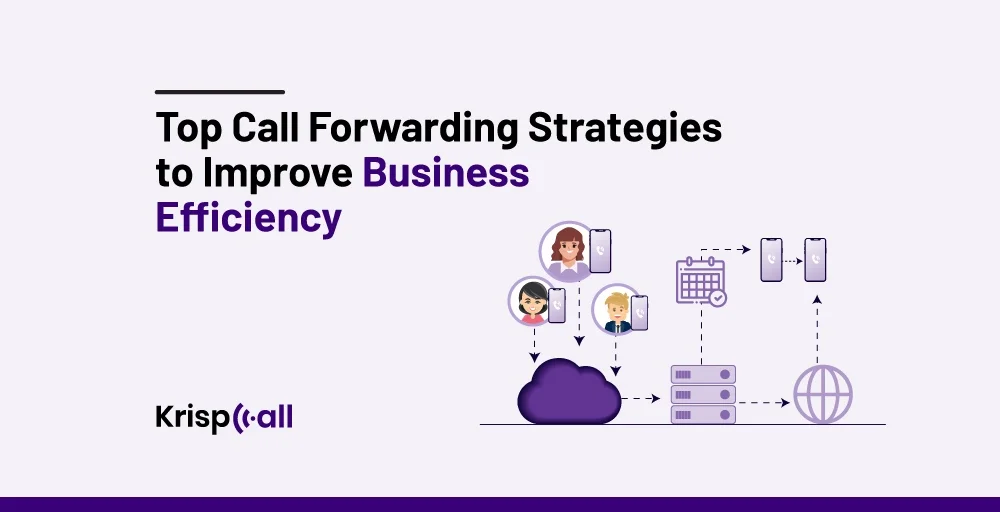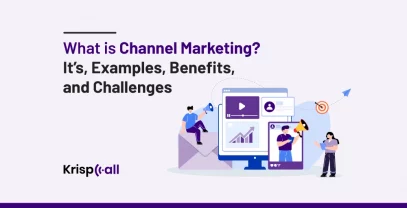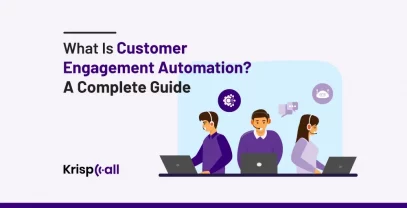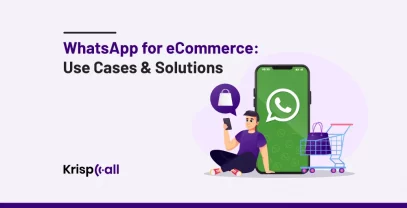Effective communication is essential for maintaining high customer satisfaction and operational efficiency in a business environment. And call forwarding is a powerful tool that ensures your business remains responsive, even during peak times or when staff are unavailable. By strategically implementing call forwarding, businesses can enhance customer service, streamline operations, and avoid missed opportunities.
So, how can you use call forwarding to improve business efficiency?
That’s what we will cover in this blog. We will delve into the benefits of using call forwarding and the top 5 call forwarding strategies to improve business efficiency.
🔑 KEY HIGHLIGHTS
- Call forwarding is an essential feature that forwards incoming calls to another phone number or a device.
- Effective call forwarding can significantly enhance business operations, ensuring that no call goes unanswered and that customers receive timely and appropriate responses.
- Implement conditional call forwarding, set up rules to forward calls based on specific conditions, and have simultaneous ringing in place to improve business efficiency through call forwarding.
- Use KrispCall’s call forwarding feature to optimize business productivity and minimize call wait time.
Benefits of Using Call Forwarding for Business
By implementing call forwarding, your business can efficiently manage many clients while maintaining exceptional customer satisfaction. Here are some benefits of using call forwarding for business:
- Improved customer service: Call forwarding ensures that calls are always answered, even if the primary phone number is unavailable. This can improve customer service and ensure callers can promptly speak to a representative.
- Increased flexibility: Call forwarding allows businesses to be more flexible in handling calls. For example, calls can be forwarded to a mobile phone, allowing employees to take calls while on the go. Further, calls can be forwarded based on caller ID or time of day.
- Cost savings: Call forwarding can help businesses save money by eliminating the need to hire new staff to handle calls when someone is unavailable. Instead, calls can be redirected to existing employees, who can answer them as part of their regular duties.
- Enhanced professionalism: Call forwarding can help businesses to present a more professional image. For example, calls can be forwarded to a dedicated business line rather than a personal cell phone.
Top 5 Call Forwarding Strategies to Improve Business Efficiency
Call forwarding allows businesses to manage incoming calls efficiently and ensure customers receive timely and appropriate responses. Here are the top five call-forwarding strategies to improve business efficiency:
1. Implement Conditional Call Forwarding for Maximum Coverage
Conditional call forwarding allows you to forward calls based on specific conditions, such as the time of day, caller ID, or whether the call is unanswered. This strategy ensures that calls are always answered, even if the primary number is unavailable.
Example:
A business has a sales team that works from 9 a.m. to 5 p.m. During these hours, calls are forwarded to the sales team’s phone numbers based on the condition chosen, i.e., when the primary number is busy, answered, unreachable, or unavailable. Outside these hours, calls are sent to a voicemail box, and the sales team receives an email notification with the caller’s details.
2. Make Sure Important Calls are Promptly Answered with Simultaneous Ringing
Call forwarding unconditional enables simultaneous ringing. Simultaneous ringing allows multiple phone numbers to ring simultaneously, ensuring that important calls are answered promptly. This strategy benefits businesses that receive high-priority calls, such as emergency services or customer support.
Example:
A medical practice has a team of doctors on call 24/7. When a patient calls the practice’s emergency number, the call is forwarded to all the doctors’ phone numbers simultaneously. The first doctor to answer the call takes responsibility for handling the emergency.
3. Forward Calls Based on Caller Location
Call forwarding based on caller location allows businesses to route calls to specific teams or agents based on the caller’s location. This strategy is helpful for companies with multiple locations or international operations.
Example:
A global e-commerce company has customer support teams in the US, UK, and Australia. When a customer calls the company’s toll-free number, the call is forwarded to the customer support team in the caller’s region. For example, if a customer calls from the UK, the call is sent to the UK customer support team. This way, customers will receive timely responses and help, and business efficiency in providing excellent customer support will improve.
4. Upgrade Business Efficiency with Auto Attendants
Auto attendants are automated systems that answer calls and provide callers with menu options to direct their calls to the correct department or agent. This strategy improves customer experience by reducing wait times and ensuring that calls are routed to the right person. When customers are happy, business productivity will automatically improve.
Example:
A financial service company has an auto attendant who answers calls and gives callers options to speak to a representative about account inquiries, loan applications, or investment advice. The auto attendant routes the call to the relevant department, quickly connecting callers to the right person.
5. Automatically Forward Calls to Voicemail During Unavailability and Follow-Up Later
This strategy ensures that calls are not missed during periods of unavailability, such as holidays or maintenance downtime. Calls are forwarded to voicemail, and the business can follow up with the caller later.
Example:
A software development company has a maintenance window every Sunday from 10 pm to 2 am. During this time, calls are forwarded to voicemail, and the development team receives an email notification with the caller’s details. The team follows up with the caller on Monday morning to address their query.
By implementing these call-forwarding strategies, businesses can improve efficiency, reduce missed calls, and enhance customer experience.
Optimize Business Productivity with KrispCall’s Effective Call Forwarding Solution
KrispCall’s call-forwarding solution empowers businesses to manage calls efficiently, ensuring high productivity and customer satisfaction. With KrispCall, you can set up conditional and unconditional call forwarding to suit your business needs.
Conditional call forwarding allows you to set specific rules for when and where calls are forwarded based on predefined conditions such as time of day, caller ID, or call type. This ensures that important calls are never missed, even during peak hours or when your primary line is busy.
On the other hand, unconditional call forwarding enables you to forward all incoming calls to a designated number without any conditions or restrictions. This feature is ideal for businesses that need to redirect calls to a central office, a backup line, or a voicemail system.
By leveraging KrispCall’s call forwarding features, you can ensure that every call is answered promptly and efficiently, enhancing customer experience and driving business productivity.
FAQs
What is Call Forwarding?
Call forwarding is a phone feature that redirects incoming calls to designated destinations including another phone number, device, or voicemail system. This flexibility ensures continuity and prevents the loss of critical customer calls, even when employees are unavailable or away from their desks.
How Does Call Forwarding Work?
Call forwarding works by redirecting incoming calls from one phone number to another phone number or device. When a call is made to the original phone number, the call forwarding feature intercepts the call and automatically reroutes it to the designated forwarding number or device.
What are the Benefits of Call Forwarding for Businesses?
Call forwarding allows businesses to make outgoing calls, forward calls to long-distance numbers, and choose how calls are forwarded based on specific conditions. It ensures that customers can reach your business even if your team is not available at their desks, which helps improve customer satisfaction and loyalty.
What are the Top 5 Call Forwarding Strategies?
The top 5 call forwarding strategies are implementing conditional call forwarding for maximum coverage, making sure important calls are promptly answered with simultaneous ringing, forwarding calls based on caller location, upgrading customer experience with auto attendants, and automatically forwarding calls to voicemail during unavailability and following up later.





